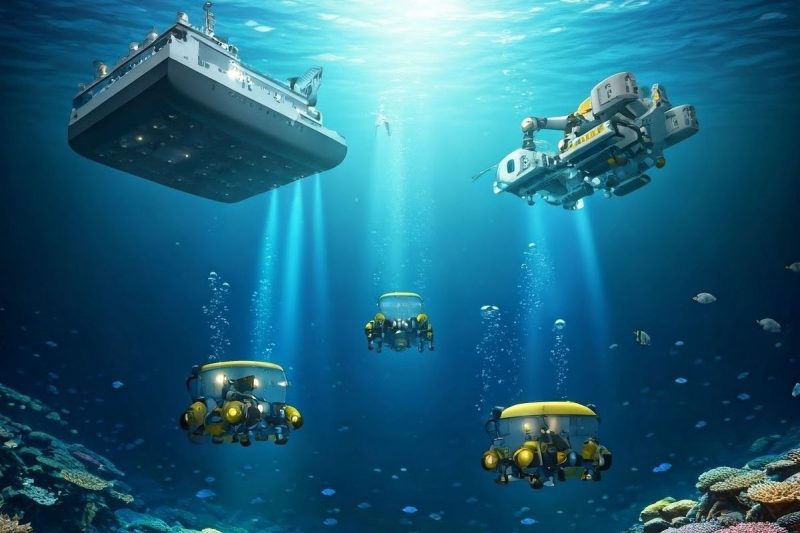In recent years, the idea of deep-sea mining has gained traction as a potential solution to meet the growing demand for precious minerals and resources. However, concerns about the environmental impact of this practice have also been on the rise. One country that has taken a significant step in addressing these concerns is Norway, which recently suspended its plans for deep-sea mining.
Norway, known for its strong environmental policies, made the decision to halt deep-sea mining activities following increasing concerns about the potential harm it could cause to marine ecosystems. The country’s Minister of Climate and Environment, Julia Nesheim, emphasized the need to prioritize the protection of the ocean and its biodiversity over the exploitation of its resources.
Deep-sea mining involves extracting minerals and metals from the ocean floor, often at depths of more than 200 meters. This process can have a range of negative impacts on marine life, including habitat destruction, disturbance of sensitive ecosystems, and the release of harmful pollutants into the water.
One of the main concerns surrounding deep-sea mining is the potential damage to deep-sea habitats, which are often home to unique and fragile species that are sensitive to disturbances. The disruption caused by mining activities can result in the loss of biodiversity and have long-lasting effects on the ecosystem.
In addition to the direct impact on marine life, deep-sea mining also raises concerns about the release of heavy metals and other pollutants into the water. These pollutants can accumulate in the food chain, posing risks to both marine organisms and humans who consume seafood.
The decision by Norway to suspend its deep-sea mining plans reflects a growing recognition of the importance of preserving the health of our oceans. By prioritizing environmental protection over resource extraction, Norway is setting an example for other countries to follow in the quest for sustainable and responsible use of natural resources.
As the global demand for minerals and metals continues to rise, it is essential for policymakers to consider the long-term consequences of deep-sea mining on ocean ecosystems. By promoting alternative solutions such as recycling, resource efficiency, and responsible sourcing, we can work towards a more sustainable future without compromising the health of our planet’s oceans.
In conclusion, the decision by Norway to suspend its deep-sea mining plans serves as a reminder of the importance of balancing economic development with environmental conservation. By taking a proactive stance in protecting our oceans, we can ensure a healthy and thriving marine ecosystem for future generations to enjoy.

